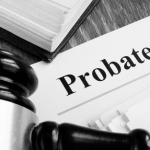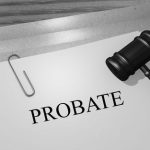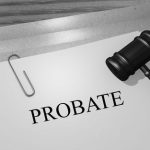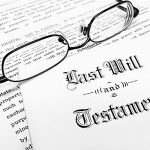Some things in life are constant, North Dakota never gets a spring – winter straight to summer, I never draw a deer rifle tag, and of course, rent is too DAMN high. Another constant is several questions that pop up with many of our estate planning clients. Let’s try to take care of some of these questions and then we can move on to finding me a place to hunt.
1. If I Get A Will, Then Will My Family Have To Go Through Probate?
Yes. We have a lot of clients that come into our office believing they have warded off the probate monster by having a will created in their old estate plan. Unfortunately, that is not the case. As you may remember, from our previous blogs, (or if you have never read our blogs, just nod your head and hope I don’t call on you), probate is the process of paying the recently deceased’s debts and distributing assets from his/her estate to the heirs. In addition, probate is the process of proving the validity of a will if you have one (for a look at probates without a will, this Star Wars-themed blog can help you out). If you have a will, then by definition you are expected to have probate (note we can change this below).
The misconception, as the Star Wars-themed blog points out, is that when everyone thinks of probate, they think of the court process for people like Darth Vader or Preston Blake (Mr. Deeds) where they are searching for a relative to inherit assets. In reality, however, estates with wills go through probate, and estates without wills go through probate. Easy enough?
2. Can I Avoid The Probate Process?
Yes. As mentioned above, probate is the process of addressing the assets in your estate. The simple way to not have probate? Don’t have an estate. If your assets are held in a trust, for example, your family may not have to go through the probate process. I use the word “may” because there is a chance you may have owned property outside of the trust or had the property you wanted in the trust, but forgot to add it in. In either case, you may still not need probate. Both North Dakota and Minnesota have procedures called “collection by affidavit” for distributing personal property (not real estate) without the need for probate, depending on the value of the personal property.
3. Is A Trust Or Collection By Affidavit The Only Way To Avoid Probate?
No. The beauty of wanting to avoid probate is that it is a relatively simple and straightforward process when you have the right attorney on the job. Call us at SW&L. We will walk you through this process. Remember, probate is the process of distributing assets out of your estate. So all we need to do is make sure your assets are out of your estate upon your death. In regards to land, houses, and other real estates, we are talking about life estate deeds (“LE Deeds”) and transfer on death deeds (“ToDD”) (stay tuned for a blog article about the pros and cons of each). With some differences between them, LE Deeds and a ToDD main function is to pass property to your loved ones nearly automatically upon your death. That means if one of these is in place on Tuesday and you die on Wednesday, your family will be the owner of the property on Thursday. This is a simple explanation of both of these devices, and you should call us at 701-297-2890 to make sure one these will fit your needs, but the point is a trust is not the only way to avoid probate.
4. What About My Financial Accounts?
What about my bank, investment, and retirement accounts? Great question. Whether it’s a bank, investment, or retirement account, the account is going to have what’s called a “beneficiary designation” (the person you name to get the account if you die). If you are periodically reviewing and updating these designations, then these accounts will go to the person you name without the need for a probate. Joint accounts work similarly and avoid probate. Call us to help walk you through updating your accounts.
Thank you for checking out Round 1 of our Estate Planning FAQ. If you are concerned with leaving your loved ones with the time and cost of a probate, call us. We can help you implement a probate avoidance strategy.
Please note that even when utilizing some of the procedures and devices we have discussed, probate may still be necessary. Creditor issues are an example of what could cause probate despite using a no-probate plan. If you want to avoid probate, need to create or update an estate plan, or want to know more about the probate or guardianship process, contact an experienced attorney. Call the Severson, Wogsland & Liebl Estate Planning Team at 701-297-2890 or email us below. Also, be sure to read Estate Planning FAQ – Part 2.
The information contained in this article and on this website is for informational purposes only and not for the purpose of providing legal advice. You should contact an attorney to obtain advice with respect to your particular set of facts.










